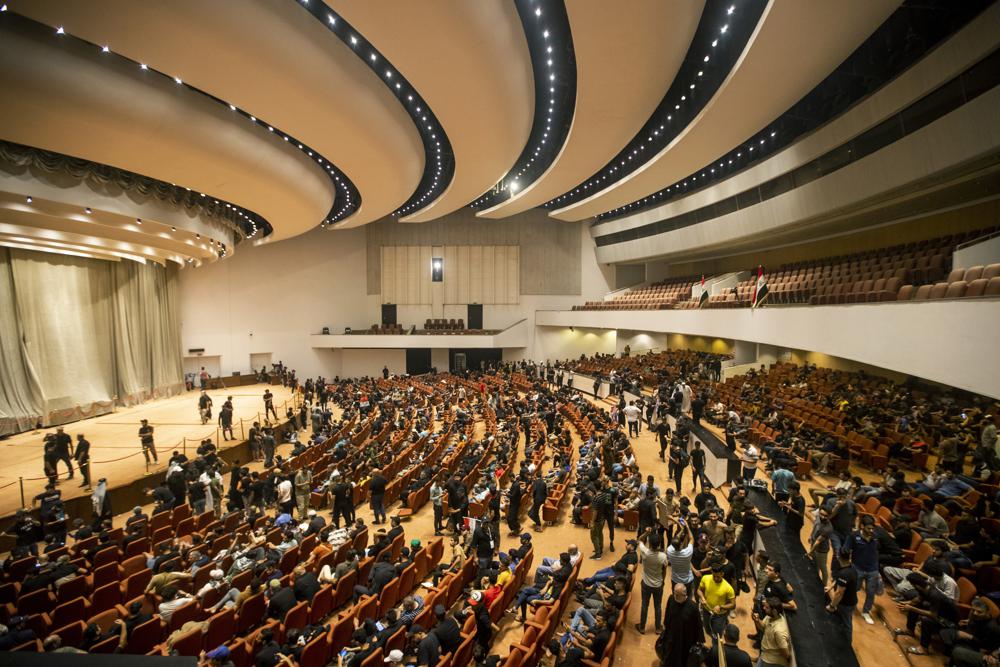Protesters in major southern Iraqi cities took to the streets on Tuesday morning, burning tires in objection to the controversial new amendments to the election law endorsed by the Iraqi parliament in a chaotic session on Monday. Independent candidates and small parties fear they will be disadvantaged by the amendments that tend to favour the established parties.
The amendments revert to the modified Sainte Lague system introduced in 2014, a complex formula to apportion seats that benefits the established parties. The law also reverses a key change made in 2019 law, reducing the number of constituencies from 83 to 18, where one district covers each governorate. At least 560 people were killed and tens of thousands were wounded, many with live ammunition during protests in 2019.
Iraqi Parliament pushes amendments
The new amendments were pushed by the Iran-backed Co-ordination Framework, which has the majority in the parliament, and is the main supporter of Prime Minister Mohammed Shia Al Sudani. The protesters vowed more demonstrations in several cities, including Nasiriyah, Najaf, Hilla, Diwaniyah, and Kut, and anti-riot police and other security forces were sent to the cities.
The country is preparing to hold its provincial council elections on November 6, its first in a decade, and the federal government has not yet scheduled the next general elections. The semi-autonomous Kurdish Regional Government also announced on Sunday that the region would hold elections for its regional parliament on November 18, after a delay of a year.
As the protests continued to rage on, the Iraqi government responded by sending in anti-riot police and other security forces to try and disperse the demonstrators. However, this only seemed to inflame the situation further, as videos shared on social media showed security troops trying to forcefully break up the protests while gunshots could be heard in the background.
The government’s heavy-handed approach to the protests drew condemnation from human rights organizations and activists, who accused the authorities of using excessive force against peaceful protesters. Many also criticized the new amendments to the election law, which they argued would make it harder for independent candidates and smaller parties to compete against the more established parties in the country.
The protests were not limited to just the southern cities of Hilla, Nasiriyah, Najaf, Diwaniyah, and Kut, as demonstrations also broke out in other parts of the country. In Baghdad, protesters gathered in Tahrir Square, the site of the 2019 protests that brought down former Prime Minister Adel Abdul Mahdi. Demonstrators here chanted slogans and held up signs denouncing the new election law and calling for reform.
The passing of the new election law and the ensuing protests have thrown a spotlight on the challenges facing Iraq’s fledgling democracy. The country has been struggling to build a stable political system ever since the fall of Saddam Hussein’s regime in 2003, with corruption, sectarianism, and violence plaguing the country.
Despite these challenges, there have been some glimmers of hope, such as the emergence of new independent parties that have sought to challenge the entrenched political elites. However, the passing of the new election law threatens to stifle this progress and reinforce the status quo.
As Iraq prepares for its next round of elections, the country’s leaders will need to find a way to address the concerns of the protesters and ensure that the democratic process is open and fair to all. Failure to do so could lead to further unrest and instability in a country that has already suffered so much.
Image Credit: AP Photo/Anmar Khalil



















